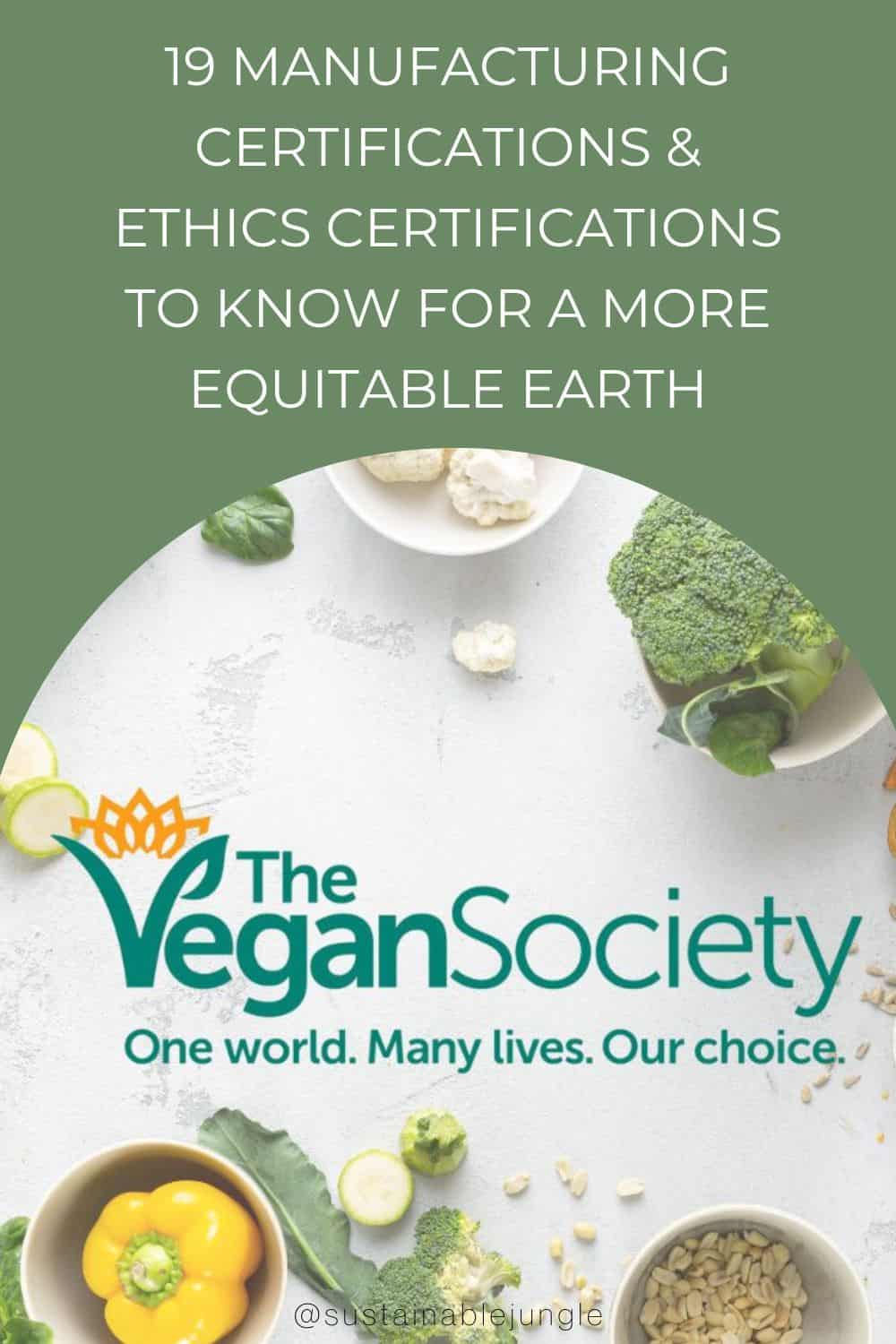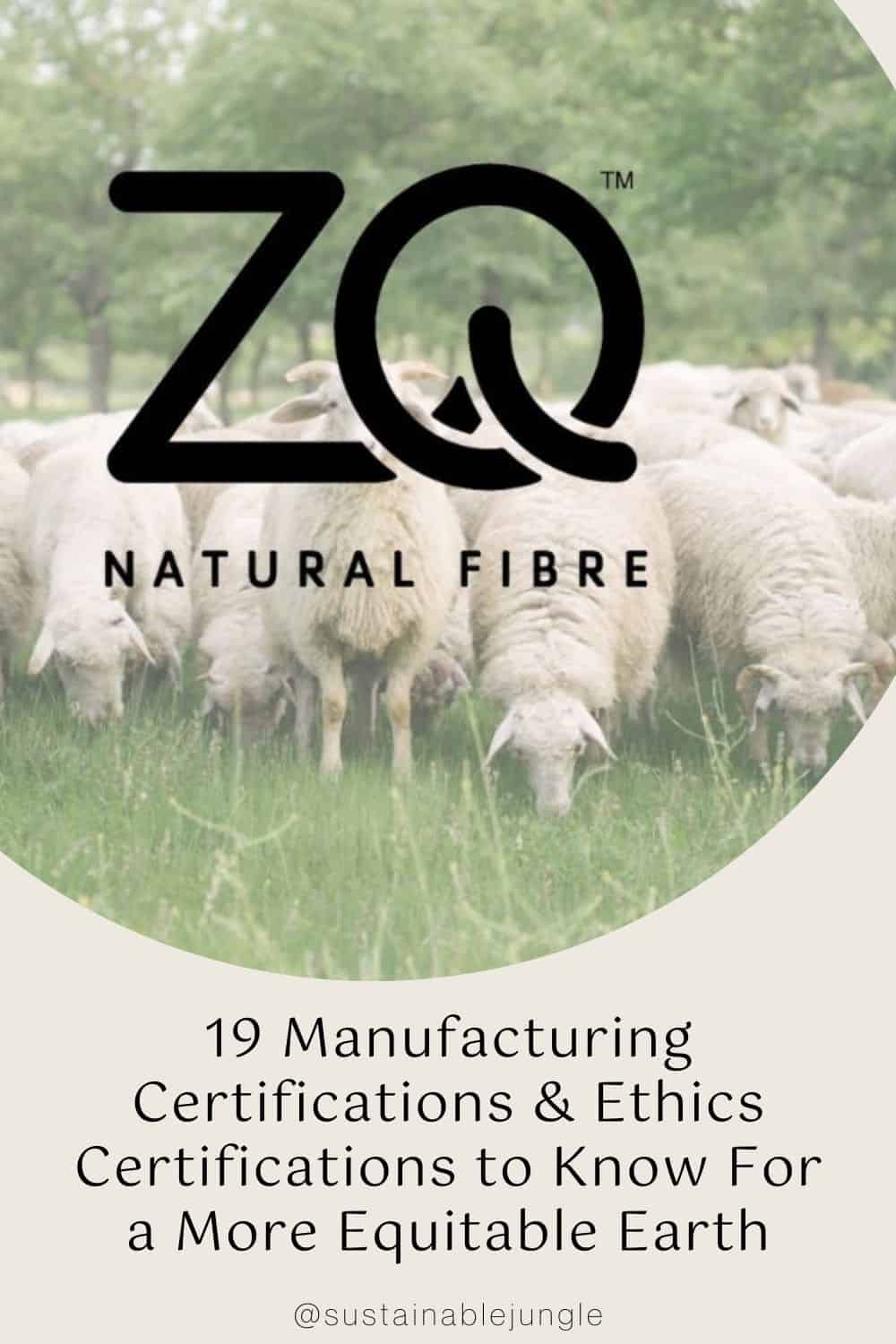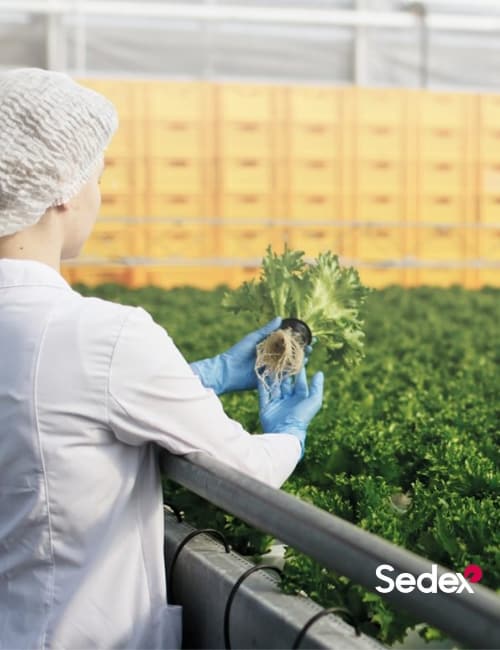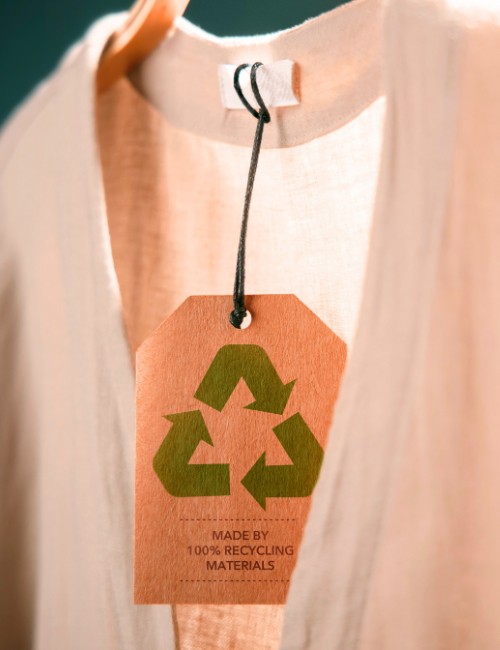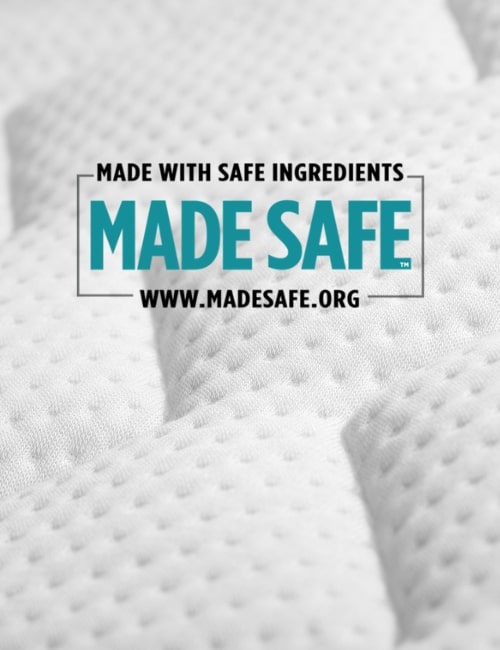
19 Manufacturing Certifications & Ethics Certifications You Should Know
A growing number of brands are prioritizing the ethics and social responsibility of their manufacturing process—and we say that’s a very good thing.
As ethical consumers, we rely on ethical manufacturing certifications and sustainability certifications to tell us that a garment or product was made in such a way that minimizes its negative impact on humans, animals, and the environment.
Here, we’re focusing on the human side of things, though it’s important to remember these two main branches of manufacturer certifications intersect in many ways. What’s more sustainable for the planet is usually better for workers, too.
That said, what is ethics certification exactly? What do all the various manufacturer certifications really mean?
And can these ethics and compliance certifications be totally trusted?
How Trustworthy Are Supply Chain Management Certifications?
Ethics are often a moving target, not to mention a subjective one. As the world evolves, so too does our human understanding of what is just or unjust.
We aren’t striving for absolute excellence here; we’re aiming to do coincidentally better, which makes it difficult to define the real impact of any ethics certificate.
And as greenwashing evolves and becomes more sophisticated—like recent questionable B Corp reliability and falsities behind GOTS-certified organic cotton—it’s become clear that ethical manufacturing certifications aren’t automatically a 100% safeguard solution for a more equitable Earth.
A recent report from the garment industry worker advocates group Clean Clothes Campaign declares:
“The social audit industry has failed spectacularly in its proffered mission of protecting workers’ safety and improving working conditions. Instead, it has protected the image and reputation of brands and their business models, while standing in the way of more effective models that include mandatory transparency and binding commitments to remediation.”
This is why we always encourage readers to do research and to hold brands accountable.
We’ve tried to make that research a little easier for you by rounding up the most popular worldwide ethics and manufacturing certifications and social responsibility advocacy groups.
We explain how each entity on this manufacturing certifications list certifies, how brands acquire it, and any associated red flags.
Most importantly, we look for the certification to uphold rigorous standards with a dependable, open authentication process to ensure a certification truly supports the commitment to social responsibility it claims to.
So, what certifications are best to get for manufacturing?
Let’s shed some light on the best supply chain certifications.
The Top Ethical Certifications For Manufacturing
Animal Welfare Certifications
Fair Trade Certifications
1. Fair Trade Certified
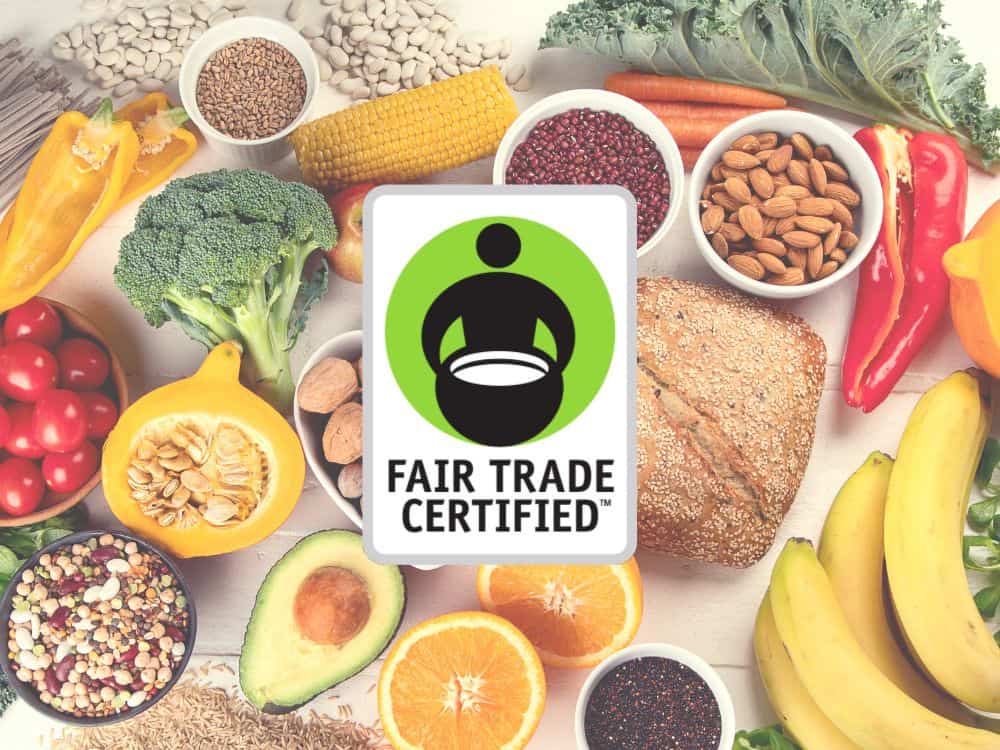
What Fair Trade USA Certifies: Food, drink (such as sustainable tea), handicrafts, housewares, and apparel.
It’s one of the most common ethical fashion certifications, and you’ll see the Fair Trade Certified logo on everything from fair trade dresses to fair trade jewelry.
About Fair Trade USA Certified & Prerequisites
Fair Trade Certified (also known as Fair Trade USA or Fair Trade America_ is a US-based certification that ensures “an innovative model of responsible business, conscious consumerism, and shared value to eliminate poverty and enable sustainable development for farmers, workers, their families, and communities around the world”.
A product, aspects of a product, source of a raw material (i.e. Fair Trade cotton, a common name among sourcing certifications) or the facilities where a product is made can all be Fair Trade Certified.
Fair Trade Certified mandates that any business with the label be held to fair labor standards that include sustainable income, care for the well-being of workers and communities, social empowerment, and environmental stewardship.
Fair labor practices and requirements are updated regularly regarding worker’s rights, supply chain management, and sustainable land management.
It’s also in reciprocal agreement with Fairtrade International, though they aren’t technically the same sustainability certification bodies.
In fact, Fair Trade USA developed the Fair Trade Certified label in 2012 after a split from Fairtrade International in order to accommodate large-scale farms that possibly greenwash large-scale farming efforts to push profits over people.
As such, when comparing fair trade certifications, Fair Trade Certified is not as strong as Fairtrade International, according to the recent International Guide to Fair Trade Labels:
“Fair Trade USA has… a relatively weak threshold for the use of the label, requiring just 20% of certified ingredients for the use of a front panel seal.”
2. Fairtrade International
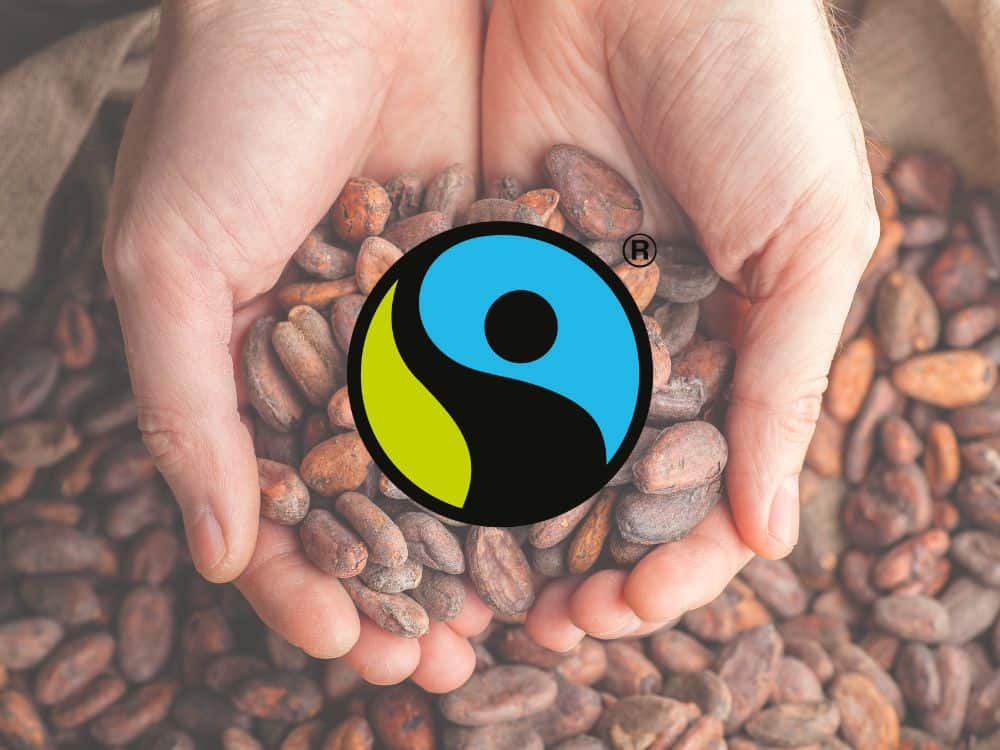
What Fair Trade International Certifies: Food, drink, apparel, handicrafts, housewares, sugar, cocoa, and coffee.
About Fair Trade International & Prerequisites
Fairtrade International holds one of the most esteemed ethical certifications in existence.
The organization is a global multi-stakeholder not-for-profit that advocates for fair wages and safe and happy working conditions for workers worldwide in a variety of industries including apparel, coffee, tea, and farming.
Environmental standards, social standards, and economic standards are all upheld by the certification.
Any product producer, trader, manufacturer, or imports/exports can become certified via an intensive audit by FLOCERT, an independent certification body.
For a brand to use the trademark seal, there is a separate licensing process. Applications and fees vary depending on location and product.
Overall, Fairtrade International is the most established and best known fair trade label globally.
Most notably, Fairtrade producers’ networks have half the vote at their general assembly. Farmers and workers are consulted when establishing new standards and policies for Fairtrade International.
3. Fair Labor Association (FLA)
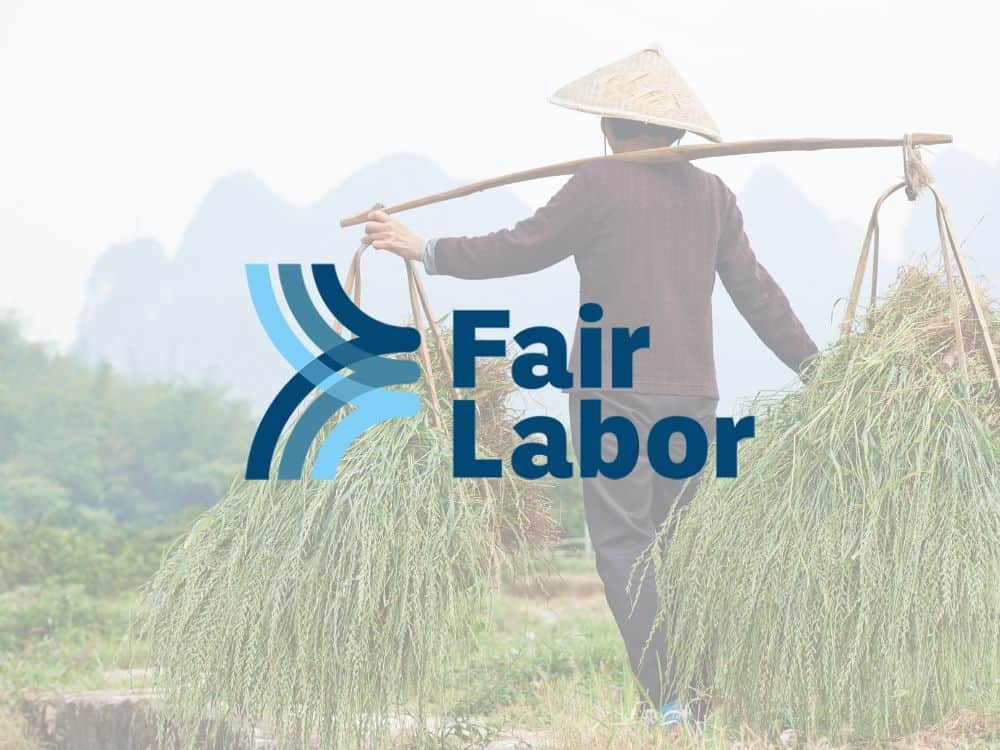
What FLA Certifies: Workers’ (primarily in agriculture and manufacturing) rights globally.
About FLA & Prerequisites
Fair Labor Association (FLA) is a non-profit organization that involves universities, civil society organizations and socially responsible companies who wish to protect workers’ rights and serve communities worldwide.
Created in the 1990s as the “anti-sweatshop” response, the association sets the international standard for labor rights along the entire supply chain of agriculture and manufacturing—making it one of the best certifications for supply chain management.
Member companies are regularly evaluated and are required to demonstrate ongoing efforts to improve working conditions and workers’ rights.
Some of the largest apparel companies worldwide are members, including sustainable outdoor clothing brand Patagonia, Nike, Adidas, New Balance, Under Armour, and Puma.
Companies become members through voluntary 3rd party auditing and a yearly fee.
While many advocate for FLA’s success at making multinational companies comply with best fair labor practices, its critics argue it lacks accountability and effectiveness, citing the dismal pay and long hours most factory workers still face globally.
4. World Fair Trade Organization (WFTO)
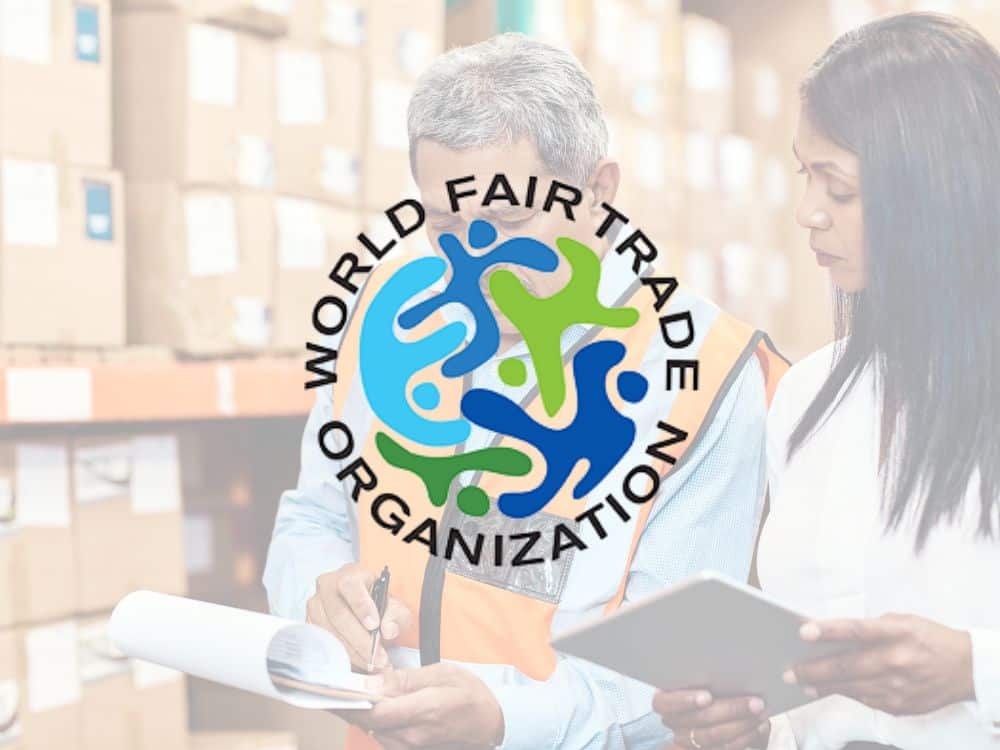
What WFTO Certifies: Verification of any fair trade enterprise.
About WFTO & Prerequisites
The World Fair Trade Organization (WFTO) assesses an enterprise’s business model and structure, as well as its supply chains and operations.
At its core, it exists to ensure members uphold the Ten Principles of Fair Trade, which it helped to engineer based upon ILO conventions, fair trade values, and fundamental human rights.
Once a business is verified, it can be considered a Fair Trade Enterprise that exists with the legitimate goals and interests of producers and their communities above all else.
It’s one of the least common ethical fashion certifications of the fair trade umbrella, but possibly the most reliable.
The organization meets yearly and has a solid track record in implementing what it agrees upon (including strengthened criteria for environment and climate change), scoring favorably in all categories by the International Guide to Fair Trade Labels.
Ethical Manufacturing Facility Certifications
5. International Labour Organization (ILO)
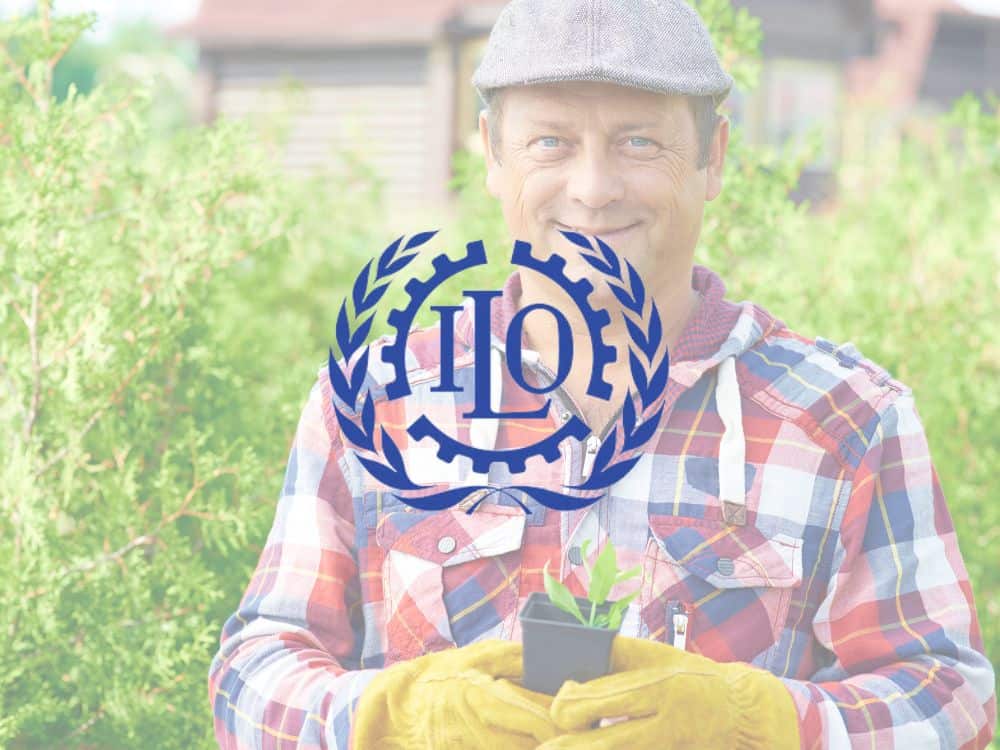
What ILO Certifies: As opposed to certifying, the ILO helps implement international labor standards and conventions that countries ratify. If there are issues with the application of these standards, the ILO helps via technical assistance and social dialogue.
You’ll usually see ILO in relation to a brand’s ethical code of conduct, which are often based on these standards.
About ILO & Prerequisites
The International Labour Organization (ILO) is a specialized human rights and labor rights agency of the United Nations, which advocates for the social and economic justice of all people and children.
They gather governments, employers, and workers to establish labor rules, working conditions, create programs to enhance employment opportunities, and help integrate labor policies.
Members of the ILO are not businesses, but nation states. To gain membership, a country needs to accept all obligations of the ILO constitution.
While the ILO is often under scrutiny for the many injustices still happening worldwide on their watch, the organization has done many positive things. Recently, they added Occupational Health & Safety as a fifth pillar of human rights, being lauded as the biggest moment for workers’ rights in a quarter-century.
6. Ethical Trading Initiative (ETI)
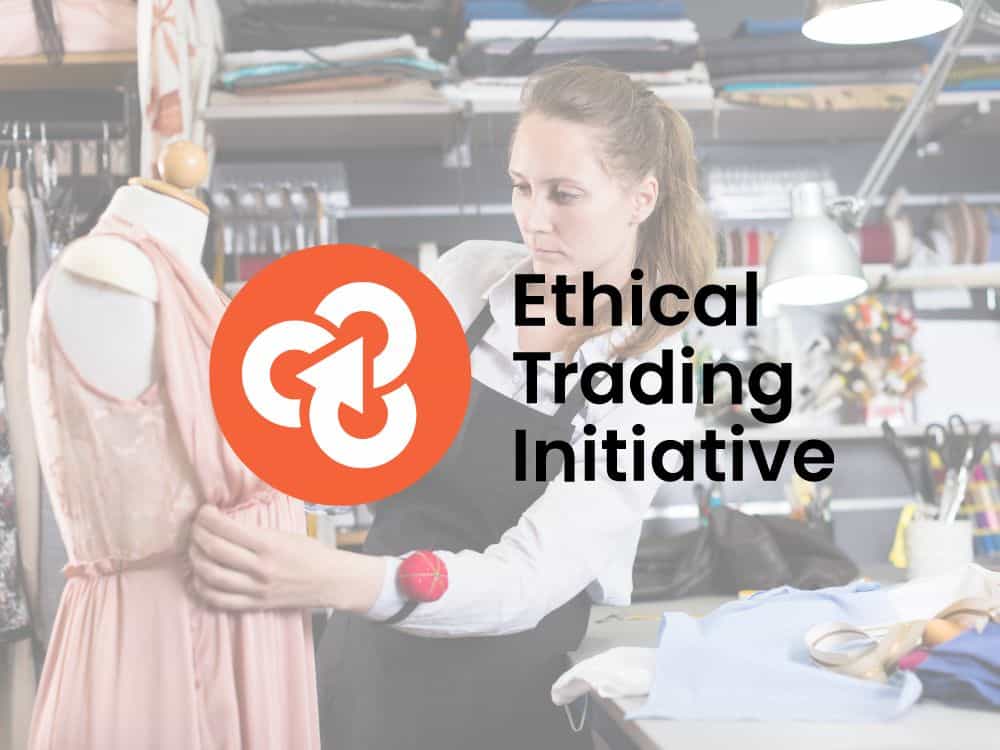
What ETI Certifies: Not a certification, but rather a fashion industry-focused members-based alliance to promote worker’s rights worldwide.
About ETI & Prerequisites
The Ethical Trading Initiative (ETI) is an alliance of organizations, unions, and companies that help redefine how large brands apply codes of labor practice with credibility, to benefit workers and end exploitation.
ETI has more than 90 member sustainable clothing brands and protects almost ten million workers globally.
Based on the standards of the ILO, the ETI Base Code of Conduct helps companies develop best practices and protection of workers in their supply chains.
However, ETI has received scrutiny on a number of issues, especially how permissive they have been with retail giant H&M who really have no reason to not pay their 850,000 workers a living wage.
There are other greenwashing accusations, too, as well as questions over who ETI really protects: workers or big profits?
7. Business Social Compliance Initiative (BSCI)
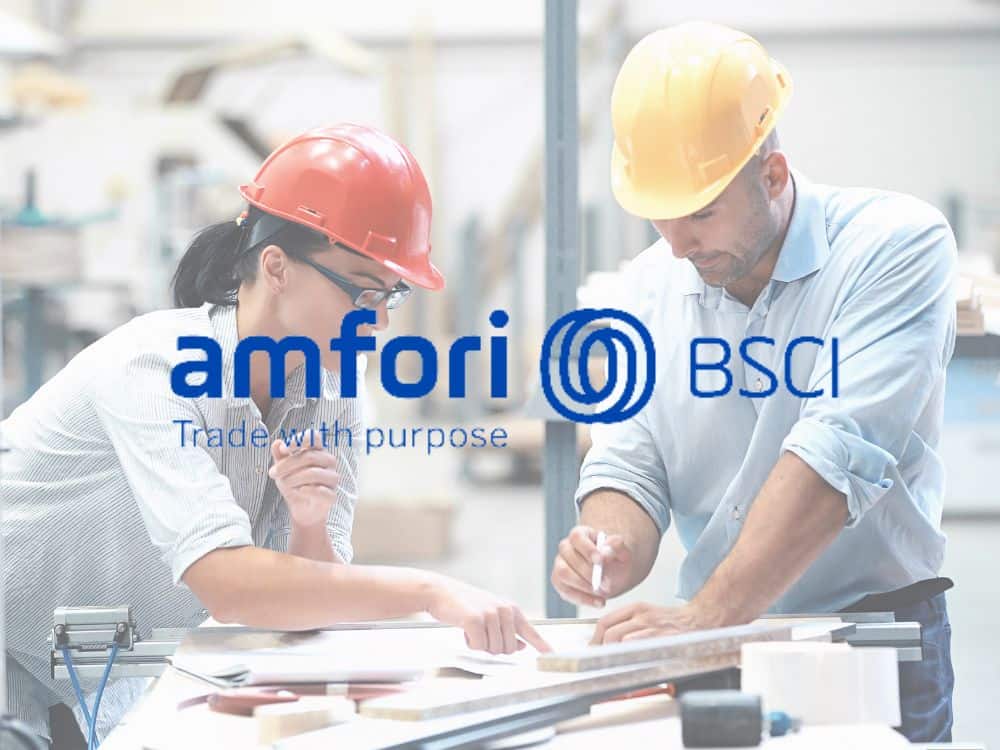
What BSCI Certifies: Not a sourcing certification, per se, but rather a compliance report based on social monitoring for ethical sourcing and manufacturing.
About BSCI & Prerequisites
Started by the Foreign Trade Association (FTA) who seek to build upon the political and legal framework for trade in a sustainable manner, the Business Social Compliance Initiative (BSCI) supports over 1,500 FTA member companies to implement social responsibility at the heart of their supply chains.
In their words, “BSCI is not a certification… [we] provide a system that helps companies to gradually improve working conditions in their supply chain. Producers that meet all BSCI requirements are encouraged to go further and achieve our best practice, the SA8000 social management certification developed by Social Accountability International (SAI).
They offer two voluntary memberships—regular and associate—and audits are valid for two years after completion.
BSCI has previously been slammed by industry watchdogs for not having rigorous enough workers protection standards to prevent disasters like the Rana Plaza garment factory collapse.
8. Social Accountability International (SA8000)
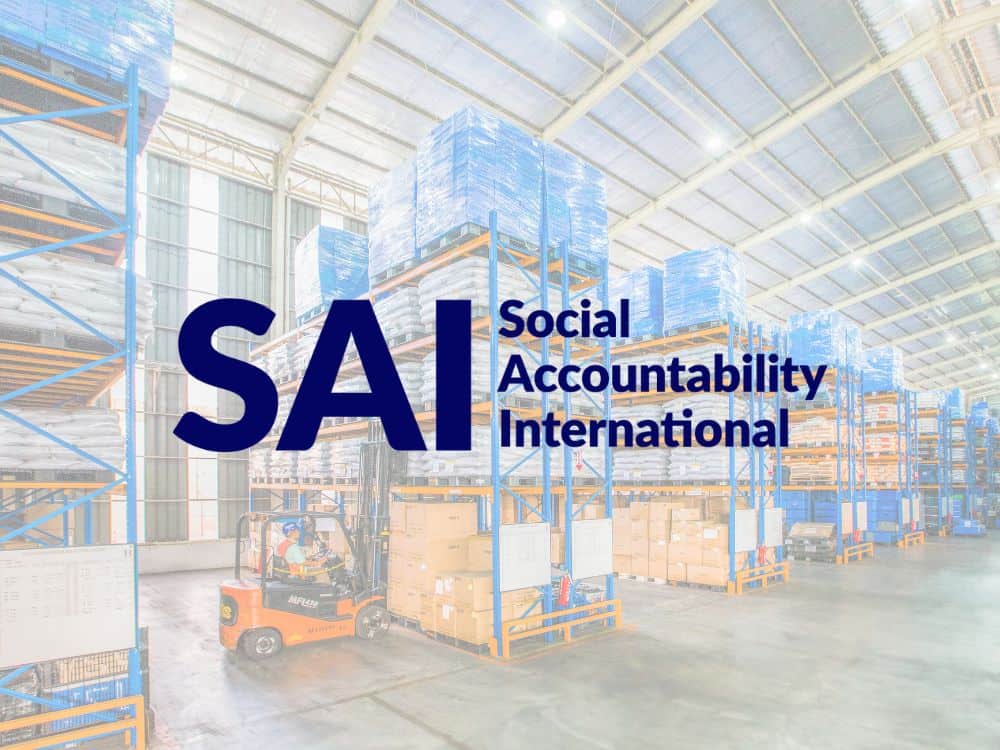
What SA8000 Certifies: Factories or any type of manufacturing facility.
They’re perhaps the most common name among manufacturing safety certifications, especially in textile and garment manufacturing.
About SA8000 & Prerequisites
Social Accountability International says of their standard, “The SA8000 Standard is based on internationally recognized standards of decent work, including the Universal Declaration of Human Rights, ILO conventions, and national laws. SA8000 applies a management-systems approach to social performance and emphasizes continual improvement—not checklist-style auditing.”
In order to become SA8000 certified, a factory must meet the standard’s criteria, along with its procedures that are regularly improved upon as various social and human rights issues arise.
Specifically, they measure a factory’s ethical performance in eight categories: health and safety, child labor, forced and compulsory labor, freedom of association and collective bargaining, discrimination, disciplinary practices, working hours, and compensation.
Awarding of the SA8000 ethics certificate relies on biannual audits by third parties. Prices vary, but can be up to $30,000 per year, depending on the scope of the business and what must be audited.
However, it has seen a number of scandals over the years, including a tragic fire in Pakistan that killed 300 workers just weeks after the SA8000 certificate was awarded.
9. Worldwide Responsible Accredited Production (WRAP)
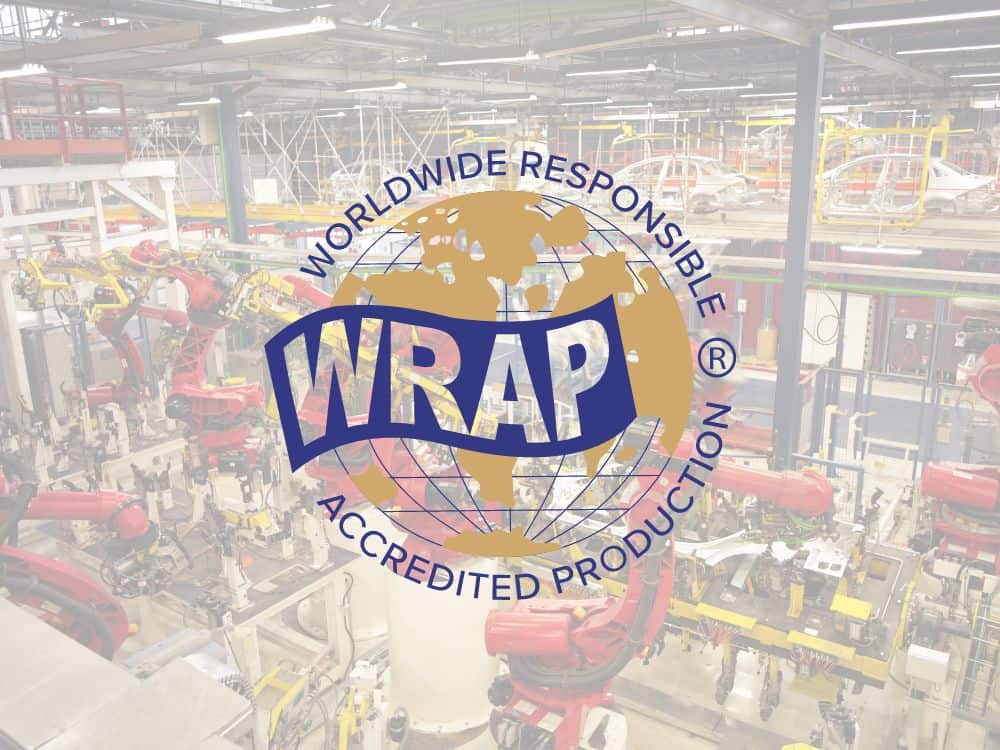
What WRAP Certifies: Factories or any type of manufacturing facility.
About WRAP & Prerequisites
Worldwide Responsible Accredited Production (WRAP) is the largest ethical fashion certification globally, with more than 2,200 factories certified that represent more than two million workers across apparel and ethical shoe brands.
To get certified, a factory must pay a fee, submit an application, and then get audited for compliance with 12 Principles. Depending on score, the ethics certification is offered in platinum, gold, and silver.
WRAP claims to have a zero-tolerance policy, yet a number of their factories have been busted for unpaid wages, child labor, and workers harassment, which throws the trustworthiness of the certification into question.
10. Sedex Members Ethical Trade Audit (SMETA)
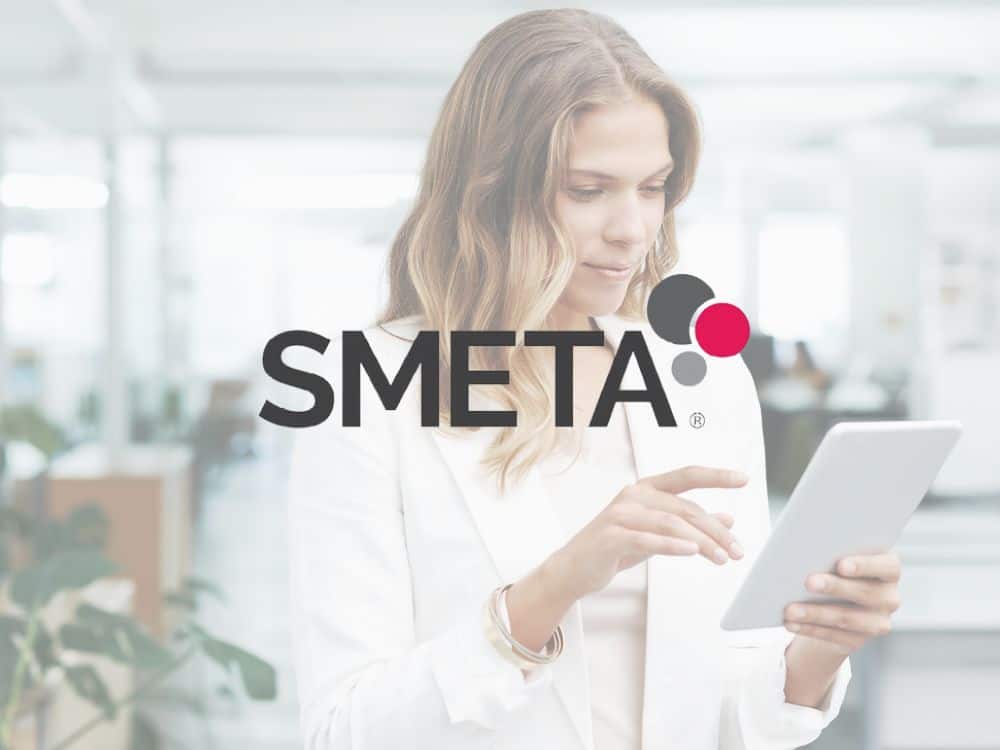
What SMETA Certifies: SMETA Audits are not a certification but an auditing methodology and online database for companies to manage suppliers and ethical performance.
About SMETA & Prerequisites
The SEDEX (Supplier Ethical Data Exchange) is a web-based system that was designed to help businesses manage information about labor practices in their supply chain, which are called SMETA (Sedex Members Ethical Trade Audit) reports.
The system came about in response to “audit fatigue” in the global manufacturing industry. The idea is that instead of many expensive and disruptive audits per year, a factory (which usually produces for multiple brands) gets a single audit that is published online for clients and prospective clients.
Unfortunately, information in the database isn’t available to consumers, only companies who are members and their suppliers.
Audits involve a self evaluation form, an in-person audit, and an issued report online.
Animal Welfare Certifications
11. Leaping Bunny
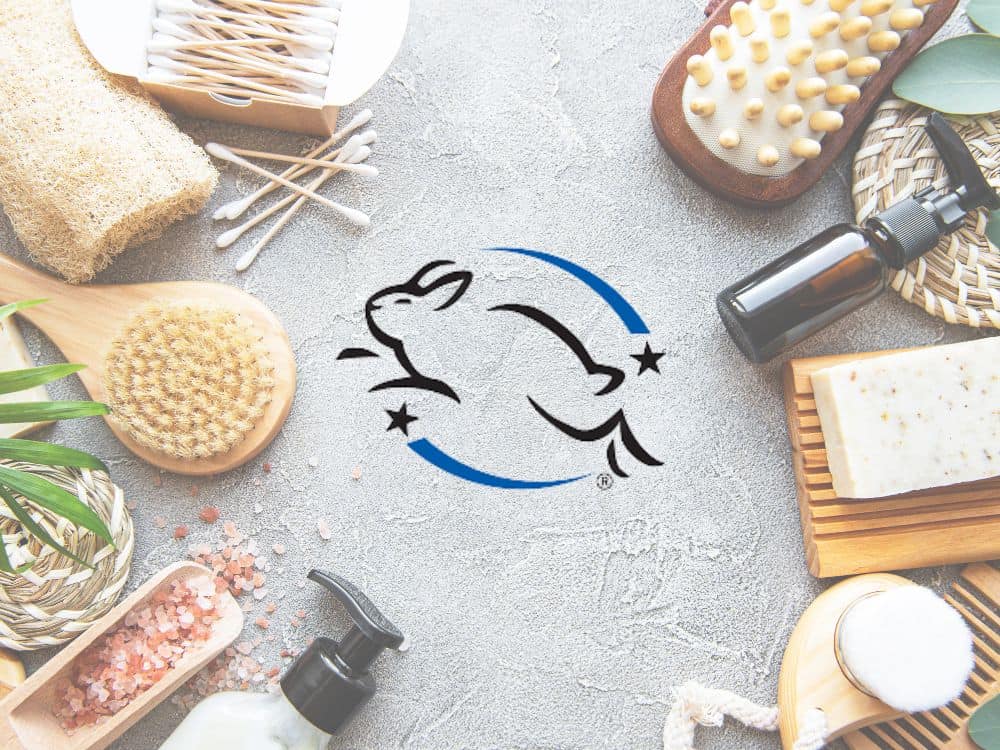
What Leaping Bunny Certifies: Cosmetics, personal care items, and household products (anything that might be tested on an animal).
Leaping Bunny Certification is perhaps the most widely used and recognized of all cruelty-free certifications used in cosmetics—from cruelty-free deodorants to cruelty-free moisturizers.
About Leaping Bunny & Certification Prerequisites
Leaping Bunny, a part of Cruelty Free International, certifies that products are animal testing free, including any ingredient, formulation, or included product from a third-party supplier. Note that the certification is not vegan.
More than 2000 products are Leaping Bunny certified.
Any company wishing to use Leaping Bunny certification has a series of audits, which also include supply chain monitoring. Once a product is approved, there is a yearly licensing fee (dependent on gross sales) in order for brands to include the logo.
Leaping Bunny is transparent about the products with their label via their Compassionate Shopping Guide and cruelty-free shopping app.
The critique is that parent companies do not have to be cruelty-free. That said, brands with the Leaping Bunny seal must have their own proven 100% cruelty-free supply chain and demonstrate that they’re a standalone operation from their parent company.
Leaping Bunny is unique in that they launched a special China Qualification Program due to regulatory changes in China’s previous mandate that all cosmetics be tested on animals prior to sale. This will require additional pre-market audit and post-market audits, conducted by Knudsen&CRC.
Chinese policy was a major stumbling block to cruelty-free certifications, because it called their validity into question. A “cruelty-free” brand choosing to willingly sell into China would still thus sanction animal-testing.
However, animal testing is still required for “special use” items (like hair dye and cruelty-free sunscreen), along with a convenient caveat that Chinese officials may pull any product off the shelf for animal testing upon reported safety issues.
To address these loopholes, certified companies must sign an agreement that their products be recalled should the Chinese government require animal testing for any reason, though it’s unclear how this will be enforced.
12. People For The Ethical Treatment Of Animals (PETA)
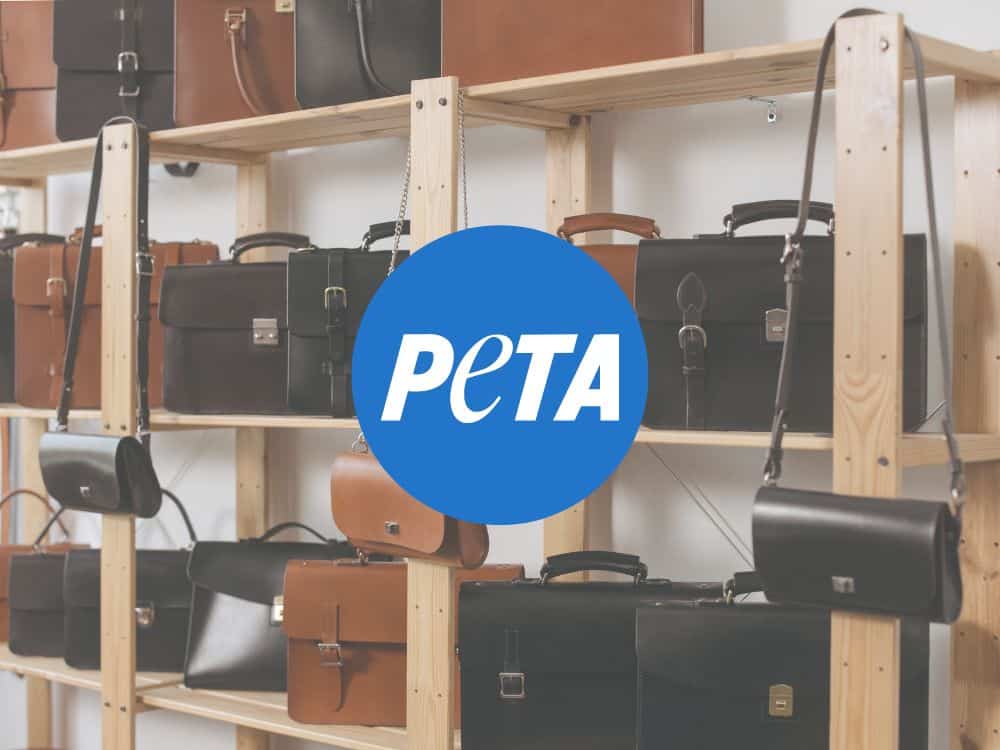
What PETA Certifies: Anything made without the use of animal byproducts, from vegan candles and cosmetics to vegan handbags.
About PETA & Prerequisites
People For The Ethical Treatment Of Animals (PETA) offers both vegan and cruelty-free certifications—because remember, vegan and cruelty-free are not necessarily the same thing.
In fact, the PETA-Approved Vegan certification indicates a product has no animal products and was created cruelty-free.
However, they will still certify brands that sell into China without any special measures taken by Leaping Bunny.
That aside, the main critique of PETA’s vegan seal is that companies are merely self-audited, which leaves enormous room for faulty claims and greenwashing.
To help consumers find cruelty-free products, however, they offer the public their Beauty Without Bunnies searchable database.
13. Vegan.org
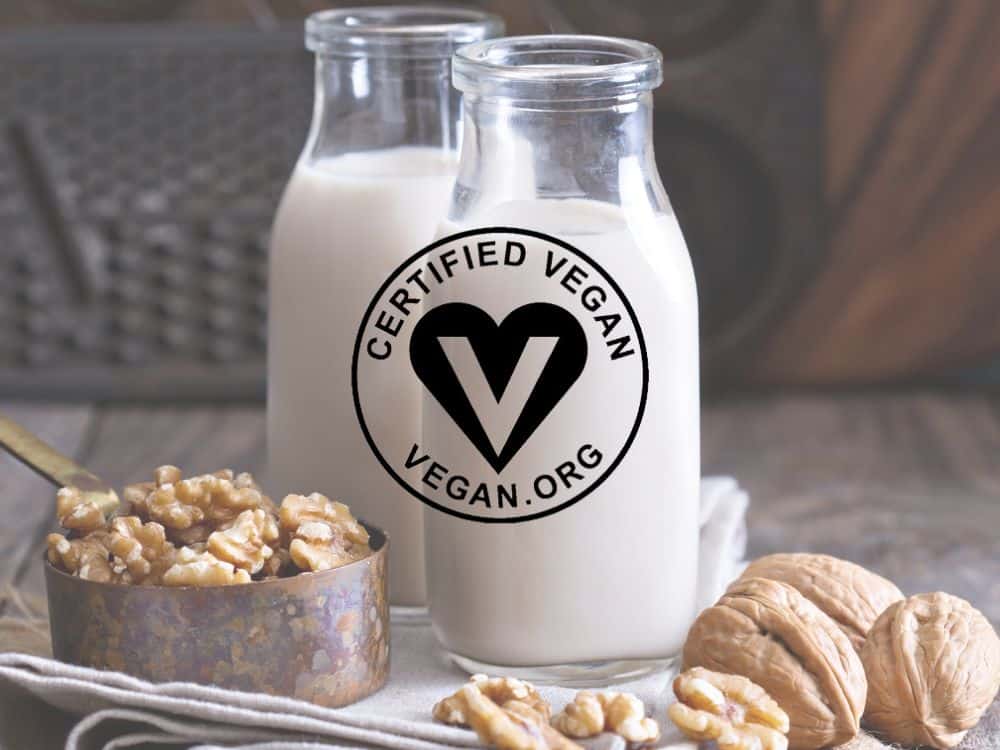
What Vegan.org Certifies: Any products that are both vegan and cruelty-free
About Vegan.org & Prerequisites
The US-based Certified Vegan label by Vegan.org applies to all 100% vegan products that must also be cruelty-free.
If shared machinery with non-vegan items is used, it must be specified on the label.
However, the label does not take into consideration agriculture or farming practices for products that may negatively impact animals, for example palm oil farming, which is known to destroy animal habitats.
To receive this ethical certificate, companies must pay $100 and then a yearly fee based on annual revenue. Certification happens by product, not company.
The label has more than 10,000 products from over 1,000 brands, of which anyone can access via their database.
14. Vegan Society
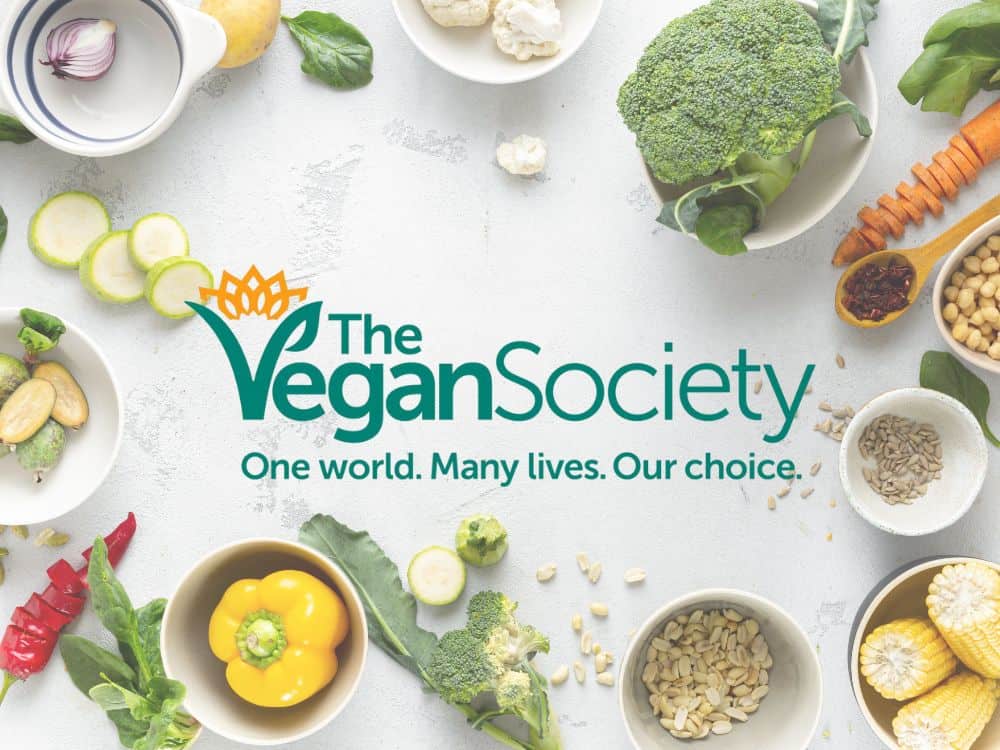
What Vegan Society Certifies: Any products that are both vegan and cruelty-free.
About Vegan Society & Prerequisites
The oldest vegan certification, with over 56,000 products bearing the stamp. The Vegan Society actually coined the term “vegan” in 1944.
A product with this stamp has no animal products, no animal testing, no cross-contamination, and limited use of and clear labeling of any GMOs.
Certification must be renewed every year and they offer a database of products.
In 2021, controversy struck the organization, with five trustees stepping down after allegations that the organization is institutionally racist and homophobic.
15. ZQ Merino
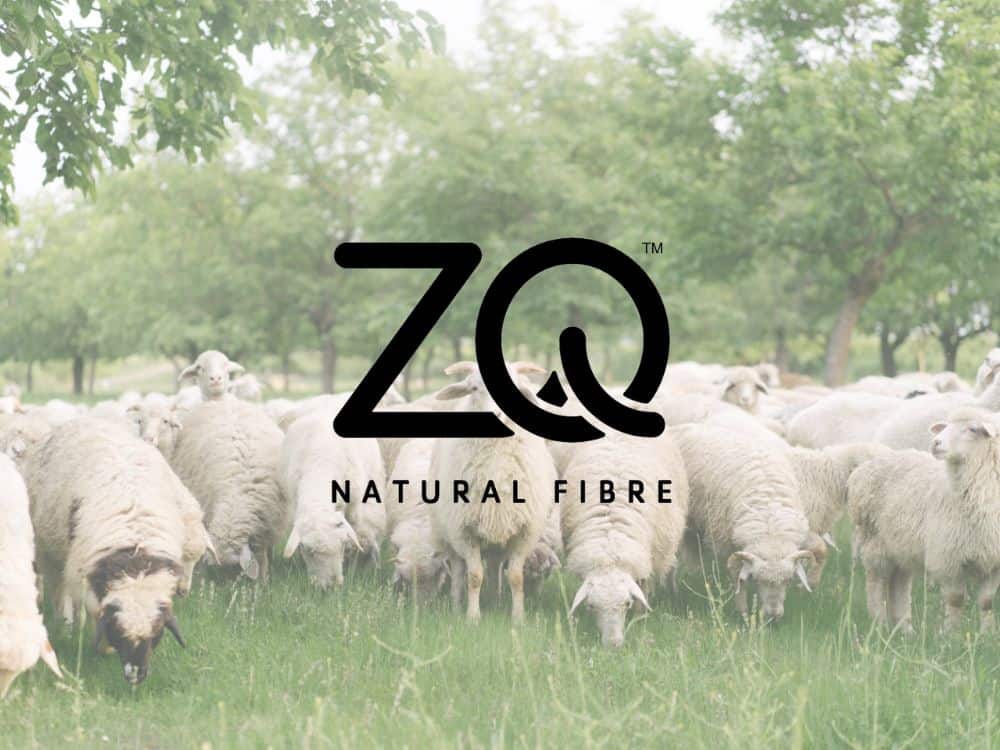
What ZQ Merino Certifies: Ethical merino wool farms.
About ZQ Merino & Prerequisites
ZQ Merino is seen as the “gold standard” of merino wool and regenerative agriculture (in the case of ZQRX products) to produce the wool.
Only non-GMO merino sheep farmers who meet rigorous standards of animal welfare, environmental sustainability, fiber quality, traceability, and social responsibility are given the ZQ certification.
Standards, as assessed by sheep professionals in regular third-party audits, include:
- Sheep allowed to roam freely under the Five Freedoms of animal welfare
- Prohibition against live shipping of animals and the practice of mulesing (where chunks of flesh from the hind end are also shorn to stimulate greater wool production)
- Land stewardship and environmental responsibility
- Health and safety of workers
- Economic stability for farmers and employees (which prohibits sale through typical commodities auctions)
- Superior quality of finished fibers
In addition to these regular audits, ZQ farms may be randomly selected for specialized veterinary audits at any time.
That said, it’s not infallible and animal suffering still occurs, but it’s regarded as top supply chain certification for wool, though its scope is unfortunately limited to only merino sheep, not all wool.
16. Responsible Wool Standard (RWS)
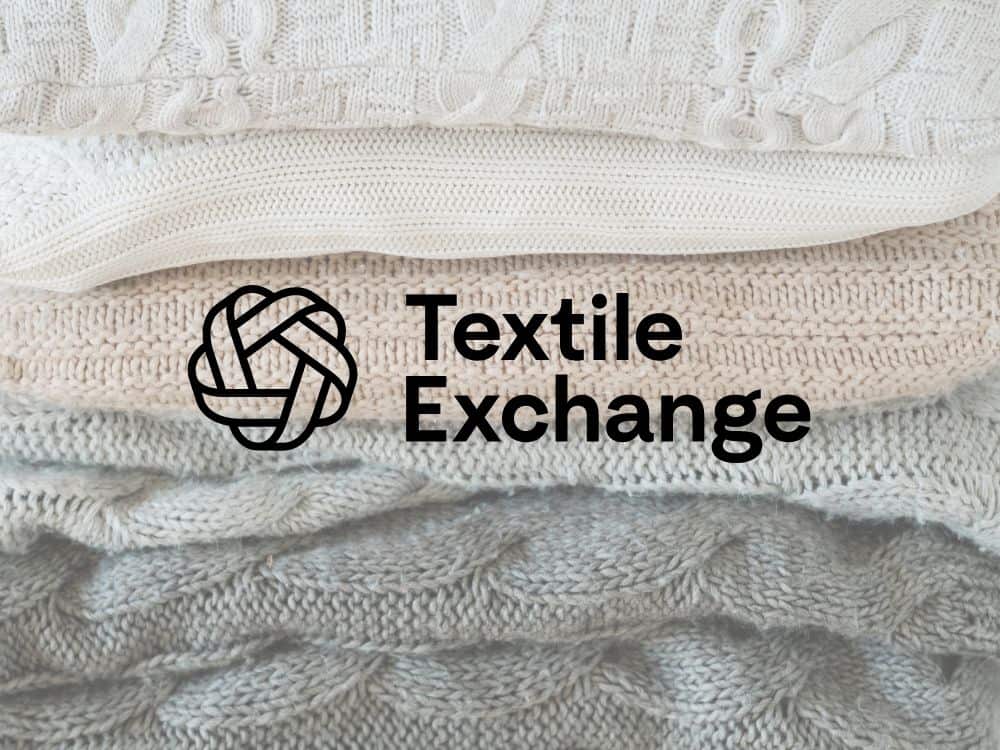
What RWS Certifies: Animal welfare and land management for “responsible” or ethical wool products, largely seen in garments and home textiles.
You’ll see the logo on everything from sustainable mattresses to sustainable slippers.
About RWS & Prerequisites
The Responsible Wool Standard (RWS) “aims to improve the welfare of sheep and the land they graze on”.
To receive voluntary certification, farmers pay levies to Textile Exchange, who oversees and sponsors the program.
They must then meet requirements regarding animal welfare, social standards, and land management, from farm to the final seller.
However, it is controversial and not perhaps rigorous enough, as cruel practices may still be permitted within their animal welfare standards.
Monitoring is also largely done via announced visits, whereas unannounced visits are crucial to prevent cover-ups of abuse and sheep suffering during inspections.
17. Responsible Down Standard (RDS)
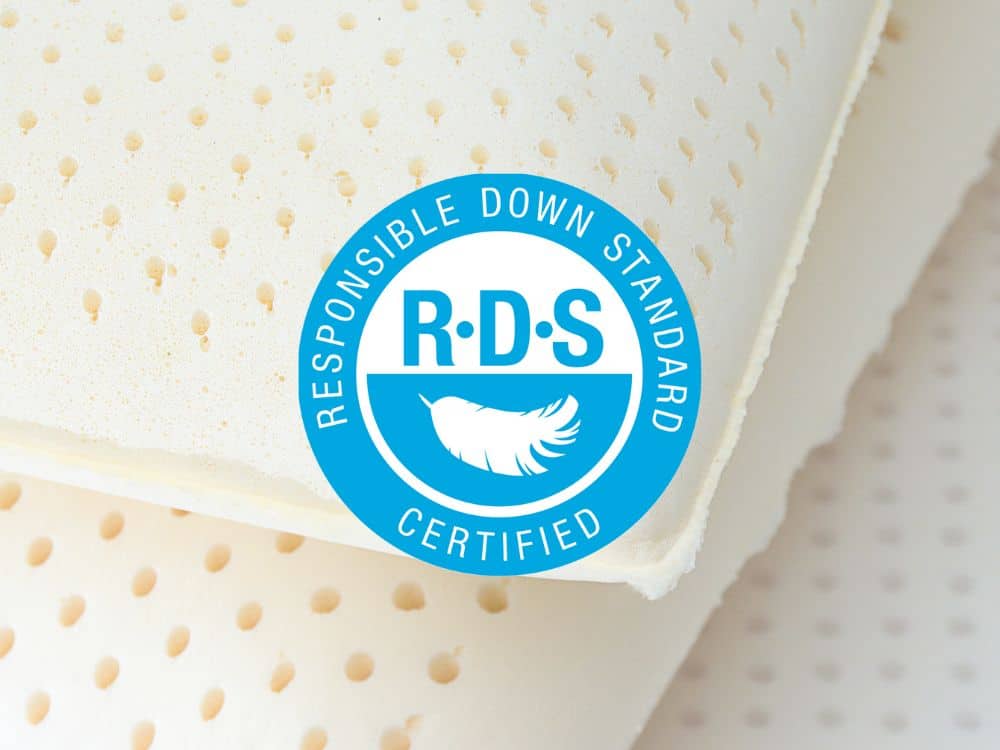
What RDS Certifies: “Responsible” down from ducks and geese for apparel, home goods (like sustainable pillows), and certain eco-friendly camping gear (like down jackets and sleeping bags).
About RDS & Prerequisites
Another Textile Exchange sponsored certification, the voluntary Responsible Down Standard (RDS) is similar to RWS, except that it “aims to protect ducks and geese used for down”.
Professional, third party audits are conducted at each stage of the supply chain to ensure a strong chain of custody and full traceability from farm to finished product. Requirements include:
- Down is only collected from ducks that are already being farmed for their meat.
- No force-feeding or live plucking.
- Birds are given the Five Freedoms “from hatching to slaughter”.
Certification via third party auditors must be renewed annually; a follow-up audit must be carried out yearly to continue certification.
Parent farm certification is optional, which some criticize as problematic as it doesn’t trace far enough back down the supply chain.
Quality Certifications for Manufacturing
18. ISO 9001
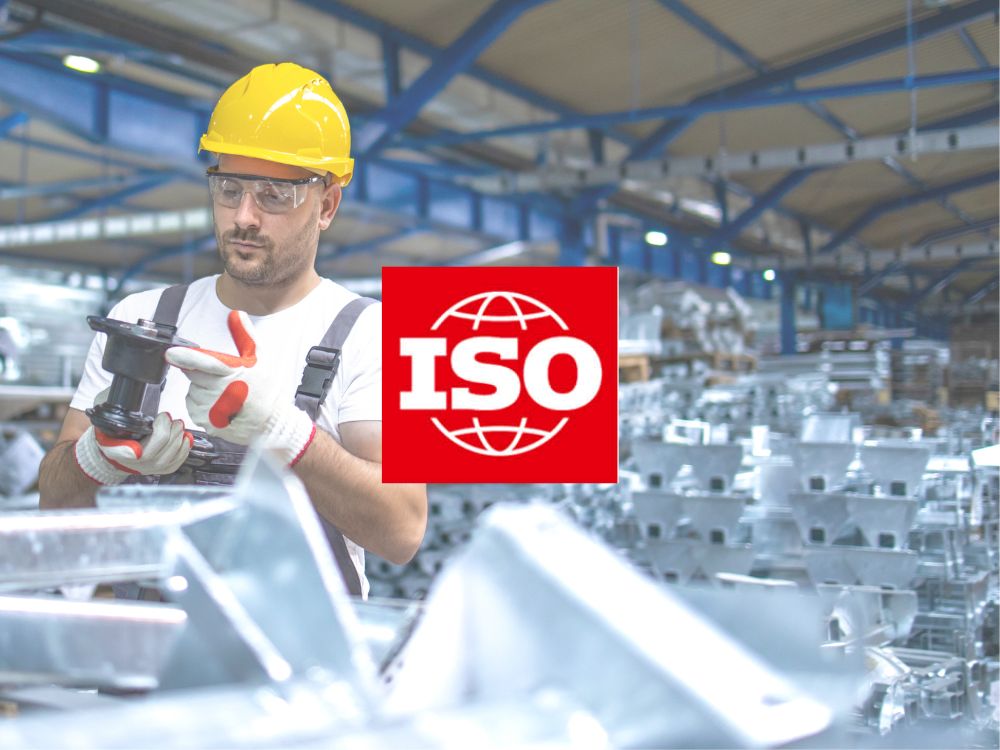
What ISO 9001 Certifies: Quality (not ethics) of any factory or manufacturing facility.
About ISO 9001 & Prerequisites
The International Organization for Standardization offers several different certifications, but what is ISO certification and what do different ISO certifications mean for manufacturing?
ISO 9001 is a standard for quality management. Companies acquire the standard as an indicator that they consistently provide products or services as per customer and regulatory requirements.
It is the most common standard of ISO 9000 series (and the only one) businesses can certify for.
To become certified, a business usually consults with a firm who makes recommendations, applicable changes are made, and then a third-party audit occurs.
The cost depends on the size of a company and the policies and structures that must be amended to receive the certification. We’re talking hundreds to millions of dollars!
Of all manufacturing certifications, ISO is the least impressive from an ethical standpoint, because worker’s rights aren’t really the point. Instead, its point is largely rooted in capitalist reasons, demonstrating superior manufacturing quality of finished products.
By acquiring the certification, international markets and trade increase, along with reputation, credibility, and revenue.
19. ISO 14001
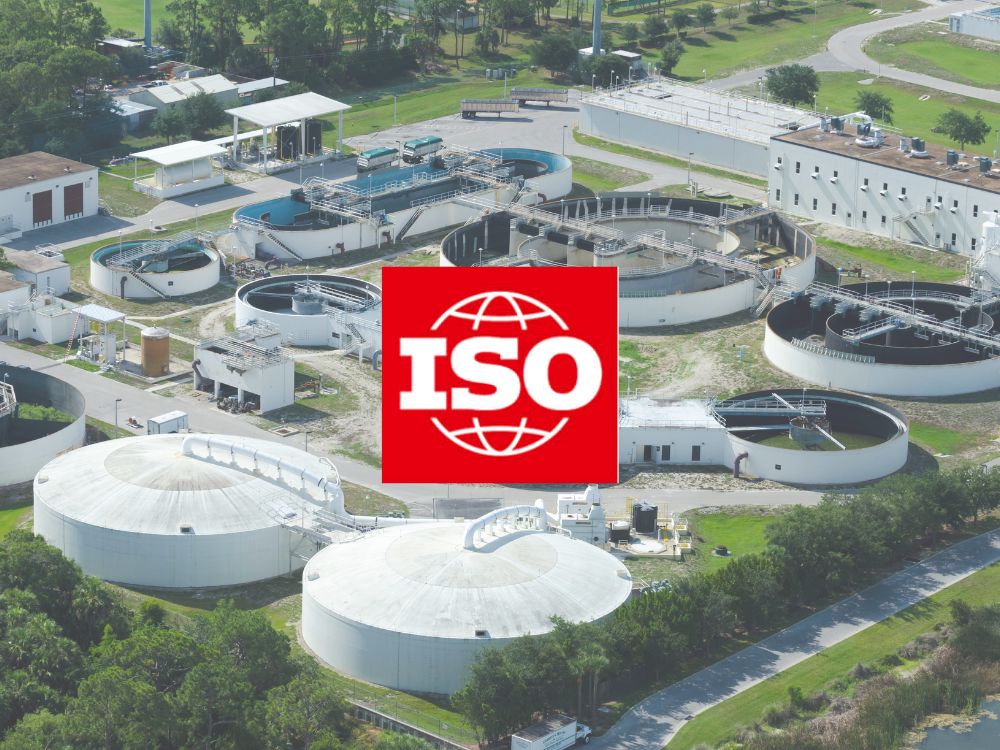
What ISO 14001 Certifies: Environmental responsibilities and practices of any factory or manufacturing facility.
About ISO 14001 & Prerequisites
Another ISO certification, ISO 14001 offers a framework for a business to create a successful environmental management system.
The environmental management system itself will be made of records, plans, practices, policies and processes that together create the governance of how a business interacts with the environment.
This means things like proper chemical and waste management, which also increases workplace safety for employees.
Largely understood as beneficial to the environment, the ISO 14001 isn’t without its purported drawbacks, namely that it focuses on process more than results and that the audits are not rigorous enough.
That said, companies who adopt it are generally doing better environmentally than those who do not.
Did you know we Have a Newsletter?
We cover the latest in sustainable living, fashion, zero waste, beauty, travel, finance and more…
Final Thoughts On The Best Manufacturing Certifications
All the different certifications, labels, associations, and groups out there can be confusing.
That said, we’re grateful there are so many compliance and ethics certifications, as they’re proof that people wish to continuously create a better and more fair world.
These certifications differ wildly in scale of rigor, mission, and ethics—and really, it’s up to you as the consumer to decide what feels best for you and consciously cast a vote for products that are less harmful to people and our planet.
While no certification is without criticisms, no one said the journey to a more just planet would be easy.
Keep in mind that as the world grows and changes, so do these certifications (hopefully for the better) so we encourage you to do further research of your own for the most accurate and up-to-date information.
Still, we hope this list gives you a solid foundation on which to base your sustainable shopping endeavors.
Pin these:
